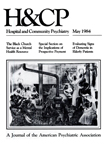The Impact of Third-Party Payment Cutbacks on the Private Practice of Psychiatry: Three Surveys
Abstract
Recent cutbacks in private insurance benefits and publicly funded health programs are threatening the access of Americans, particularly the poor and the disabled, to private psychiatric care. The authors present the findings of three surveys that assessed the impact of threatened or actual cuts in third-party payments on the treatment provided by private practitioners. One survey indicated that, contrary to popular opinion, more than half of the psychiatrists in Northern California see severely disturbed Medicaid patients and that they provide outpatient psychiatric services to them for less cost than would public clinics. Two surveys conducted in the Washington, D.C., area indicated that both patients and psychiatrists have suffered from insurance cutbacks, with fewer patients being able to afford intensive private treatment and psychiatrists using reduced fees and less optimal treatment modalities. The fiscal and ethical dilemma posed by the cutbacks and further research needs are also explored.
Access content
To read the fulltext, please use one of the options below to sign in or purchase access.- Personal login
- Institutional Login
- Sign in via OpenAthens
- Register for access
-
Please login/register if you wish to pair your device and check access availability.
Not a subscriber?
PsychiatryOnline subscription options offer access to the DSM-5 library, books, journals, CME, and patient resources. This all-in-one virtual library provides psychiatrists and mental health professionals with key resources for diagnosis, treatment, research, and professional development.
Need more help? PsychiatryOnline Customer Service may be reached by emailing [email protected] or by calling 800-368-5777 (in the U.S.) or 703-907-7322 (outside the U.S.).



